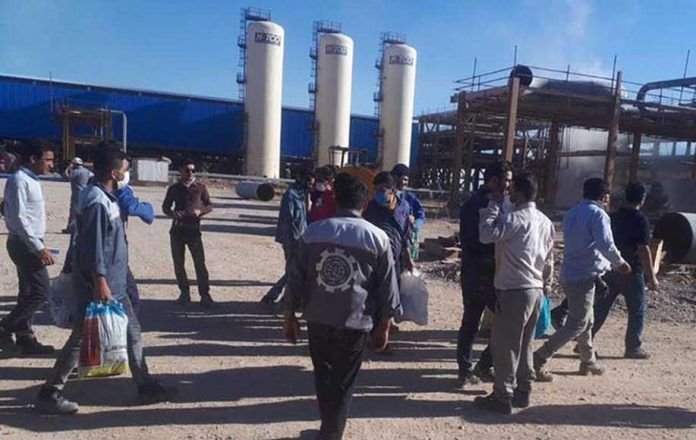DUBAI, June 25 (Reuters) – Thousands of workers in Iran‘s energy sector have held protests for better wages and working conditions in southern gas fields and some refineries in big cities, according to Iranian news agencies and social media postings.
An unspecified number of workers with temporary hiring contracts “stayed home” to press for higher wages earlier this week in Assaluyeh, Iran‘s main gas production hub on the Persian Gulf, the semi-official Iranian Labour News Agency (ILNA) reported.
Some officials and parliamentarians acknowledged the protests and called for efforts to help resolve the issues that prompted them.
“Since we learned of the labour actions and their salary and benefit demands… the issues are being seriously followed up in (parliament’s) Energy Commission,” Mousa Ahmadi, a lawmaker whose district includes Assaluyeh, told ILNA.
According to rights groups and social media posts, Tehran’s refinery has fired 700 striking workers. A social media video showed refinery workers holding up what appeared to be notices of termination.
Shaker Khafai, spokesman for the state-run Tehran Oil Refining Company, denied the dismissal report and said a sub-contractor had laid off 35 workers, the state news agency IRNA reported.
The protests, dubbed “Campaign 1400” with reference to the Iranian calendar year, saw two gatherings on Thursday, including one by workers at a power plant in Iran‘s Persian Gulf island of Qeshm, the Human Rights Activists News Agency (HRANA), which is based outside the country, reported on Friday.
There was no immediate report of widespread action against protesters by security forces which have cracked down on protests in the past, especially when they have turned political.
Iran held a presidential election last week, won by hardline judiciary chief Ebrahim Raisi, who will take office in August, replacing pragmatist Hassan Rouhani.
(Reporting by Dubai newsroom Editing by Peter Graff)
COVID-19 Halted Riots Over Poverty and Living Conditions in Iran, Official Says
Lifting U.S. Sanctions Will Not By Itself Revive Iranian Economy, Officials Say
Iran Showed a Negative Balance of Trade for Non-oil Products in 2020
Rights Groups Call for Probe into Iran’s Raisi for Crimes against Humanity


